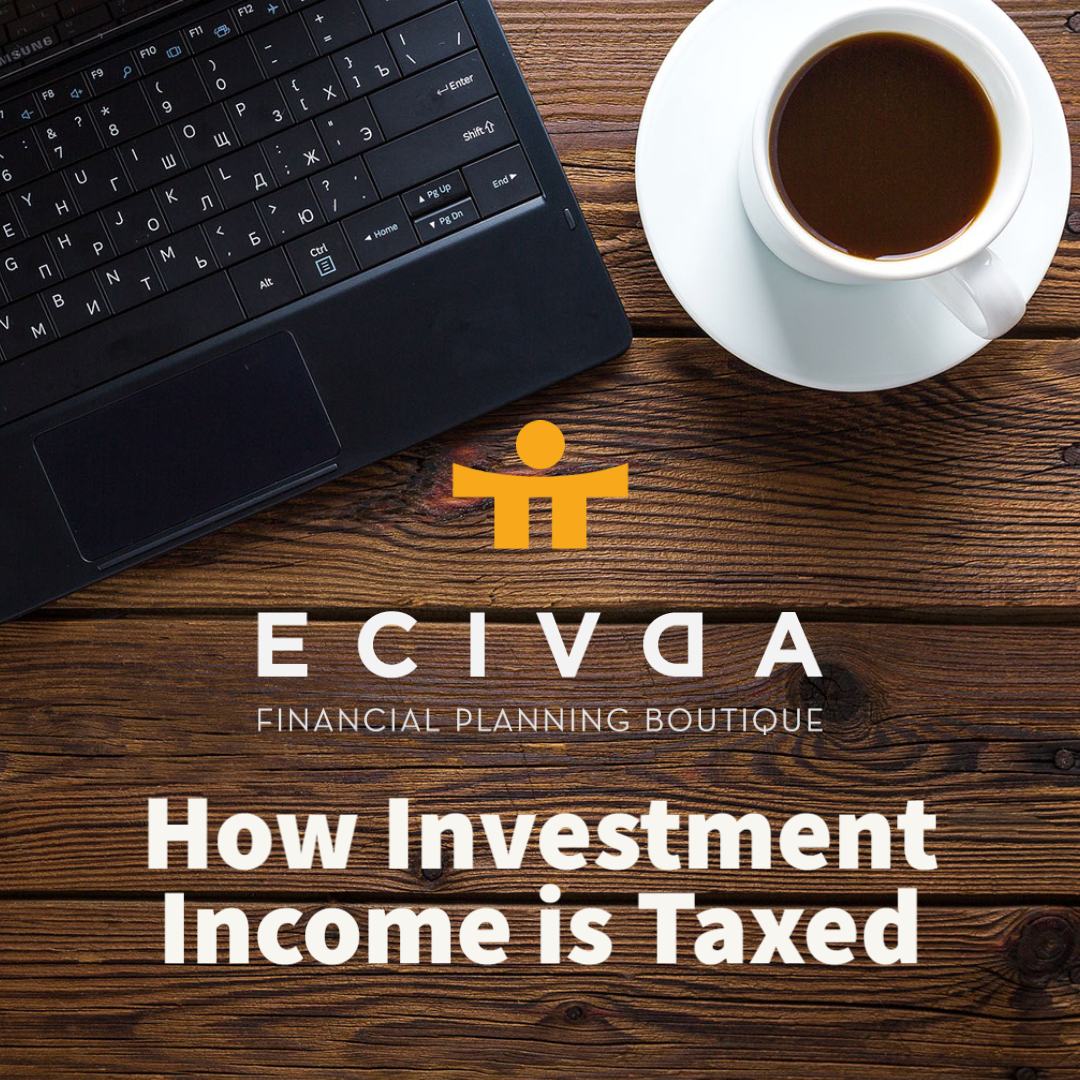How Investment Income Is Taxed
Investments can represent a major source of income for some individuals and with that income comes a wide variety of tax implications. The good news is that some types of investment incomes are subject to special tax treatment. Understanding how your investments are taxed is an important part of your financial plan. The most common types of investment income most investors will have to deal with are interest, dividends, and capital gains.
What You Need to Know
Interest Income
Interest income refers to the compensation an individual receives from making funds available to another party. Interest income is earned most commonly on fixed income securities, such as bonds and GIC’s. It is taxed at your marginal tax rate without any preferential tax treatment and is taxed annually whether or not it has been withdrawn from the investment.
Example: An investor buys a 10-year GIC that has agreed to pay him 4% annually. If the investor bought the GIC for $100, he can expect to earn $4.00 in interest every year for the next 10 years. The investor must report the $4.00 of interest income on his income taxes and will be taxed at the marginal tax rate.
Due to the fact that interest income is reported as regular income, it is the least favorable way to earn investment income.
Dividend Income
Dividend income is considered to be property income. A dividend is generally a distribution of corporate profit that has been divided among the corporation’s shareholders. The Canadian government gives preferential tax treatment to Canadian Controlled Public Corporations (CCPC) in the form of a dividend income gross up and Dividend Tax Credit (DTC). The two types of Canadian dividends are usually referred to eligible or non-eligible. It is possible to receive dividends from a foreign corporation, but these dividends are not subject to any special tax treatments and are to be reported in Canadian dollars as regular income.
Tax payers who receive eligible dividends are subject to a 38% dividend income gross up, which is then offset by a federal DTC worth 15.02% of the total grossed up amount. Non-eligible dividends are subject to a gross up of 17% and 10.5% DTC.
Example: A shareholder of a Canadian Controlled Public Corporation is paid out a dividend of $100. This income is considered to be an eligible dividend and is subject to the gross up and the DTC. His dividend would be gross up 38%, so he would now have an income of $138.00. The DTC would be 15.02% of the grossed-up amount, equaling $20.73. Therefore, the shareholder would report a dividend income of $138.00, but would have his federal taxes owing reduced by $20.73.
The rationale for the gross up and DTC is related to the fact that dividends are paid in after-tax corporate earnings. If there were no adjustment to the dividend, it would result in the dollars being double taxed. This tax treatment makes dividends the most tax efficient way to receive income. Tax is payable when the dividends are paid out. It is, however, important to note that the gross up and DTC rates are influenced heavily by legislation and could change at any time.
Capital Gains
Capital gains are realized on equity investments (such as stocks) that appreciate in value. For example, if an investor bought a stock at $5.00 per share and sold them at $10.00 per share, they would have a capital gain of $5.00. What makes capital gains different from other types of investment income is that you only are required to pay tax on 50% of the gain. Another desirable trait of capital gain income is that you do not have to pay tax until the investment is disposed of, giving the investor some control over when they trigger the gain and pay the tax. Whether or not they are the most tax efficient income depends on your province of residence and subsequent tax rates.
The Bottom Line
It is important to ensure that investors understand how their investments are being taxed and the implications that different types of investment income can have on your taxes owing. A great first step is meeting with an advisor who can help you put together the most tax efficient investing strategy, making sure your money is reaching its full potential…not going to the tax man!
